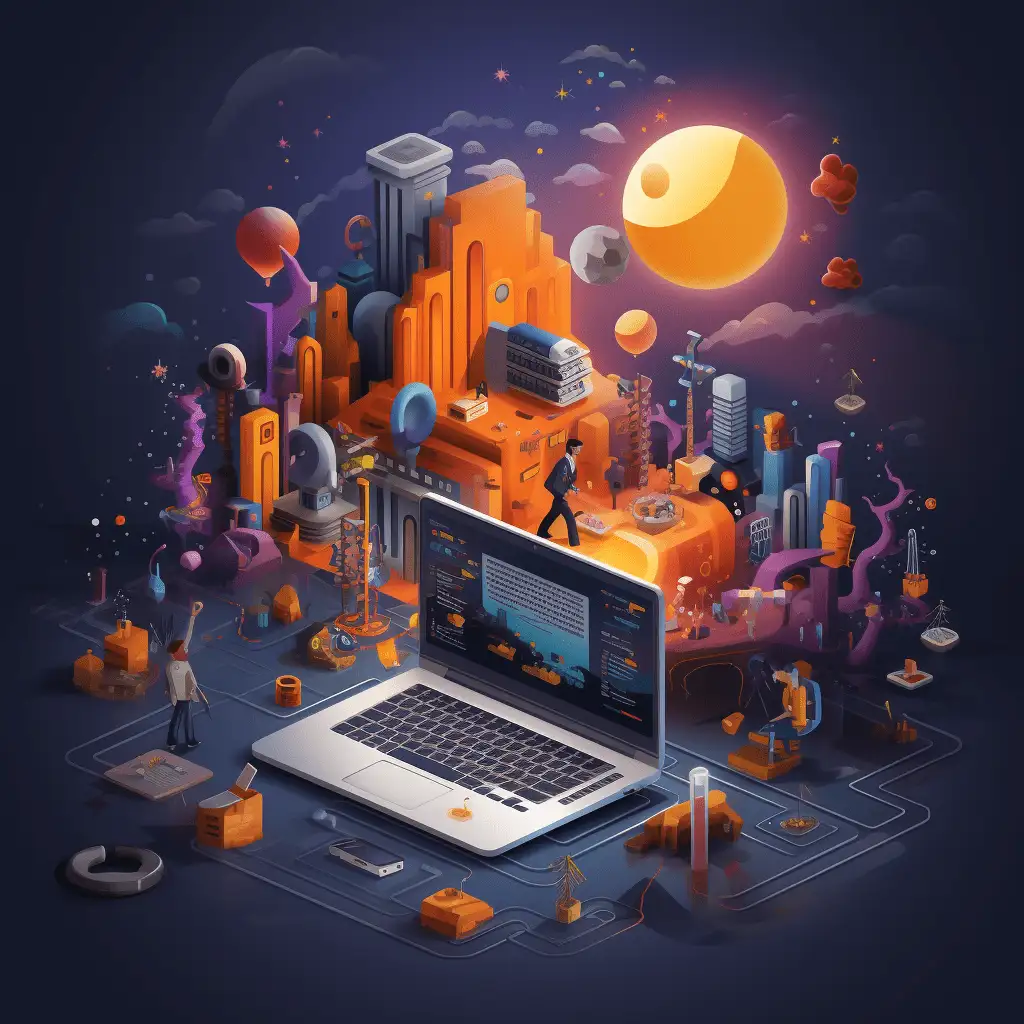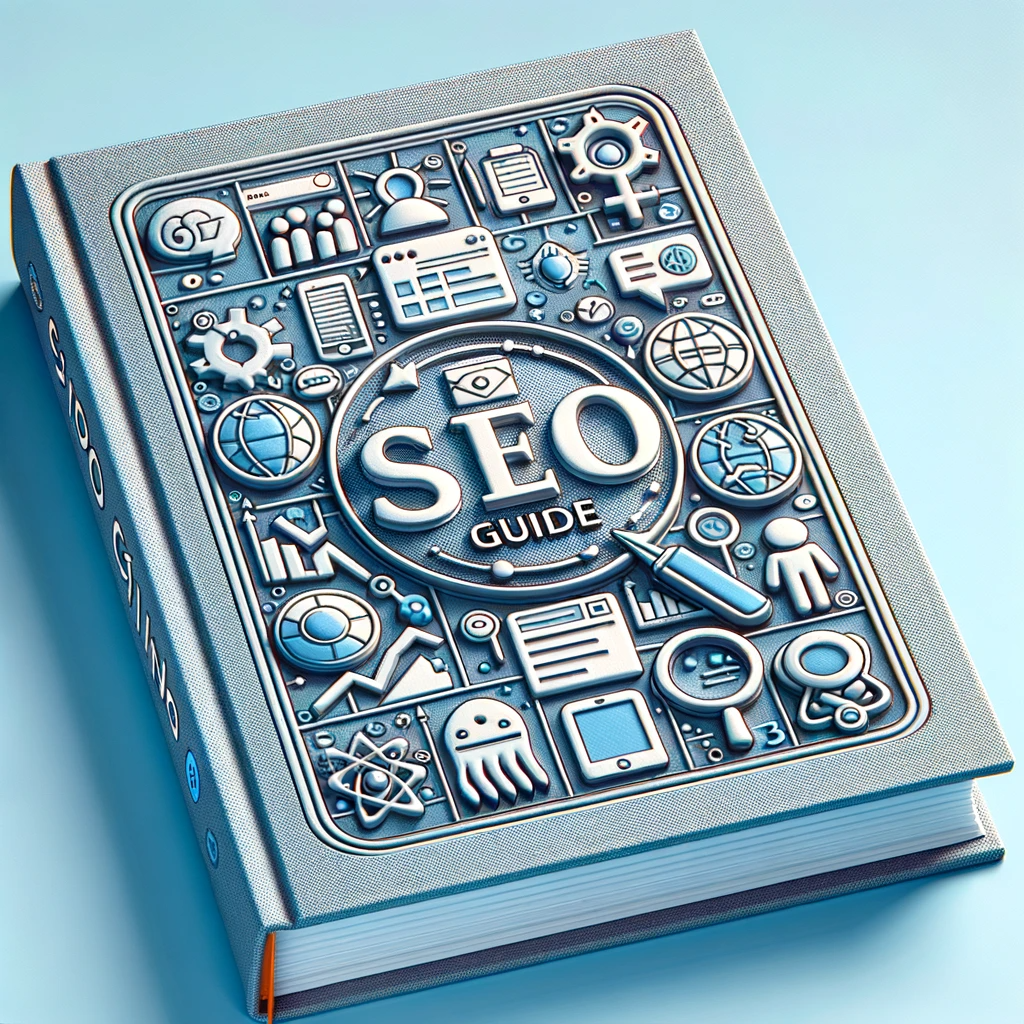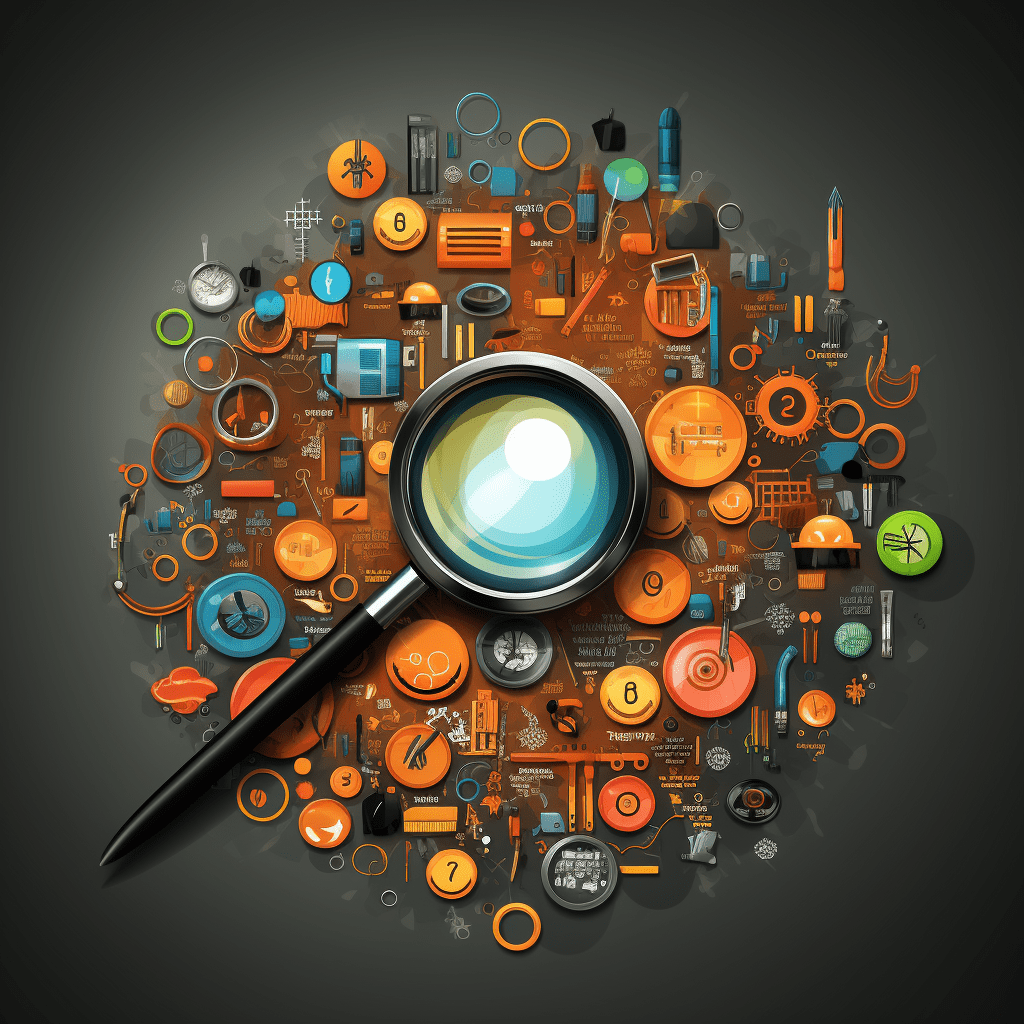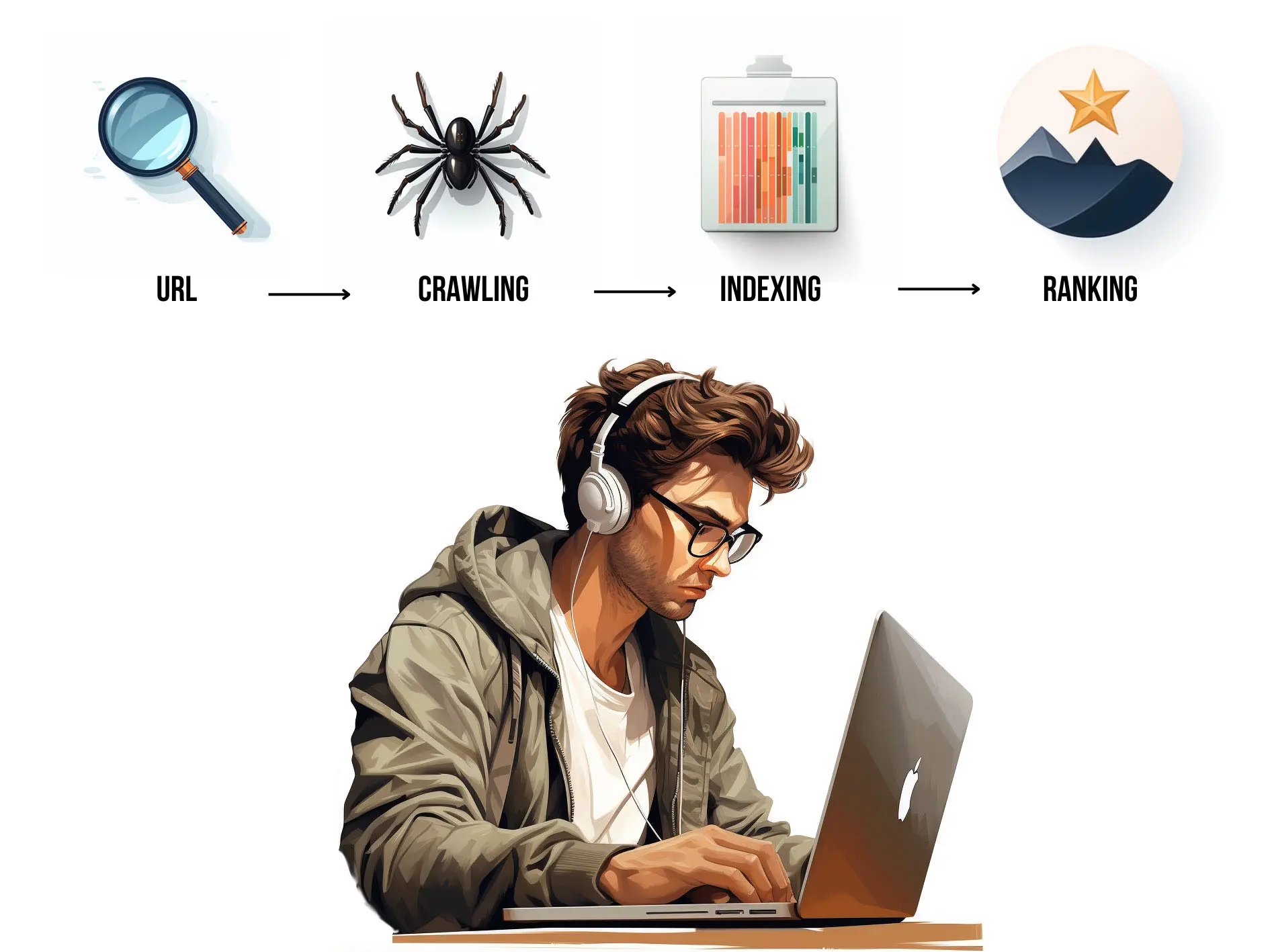Artificial Intelligence (AI) and Search Engine Optimisation (SEO) are two technological fields that have undergone significant developments in the last decade. This article aims to perform an in-depth analysis of how these two fields influence and complement each other. By examining the underlying mechanisms, algorithms and applications, we aim to highlight the complex relationships between AI and SEO.
Article content
In this article, we will delve into:
| Key point | Summary |
|---|---|
| AI and SEO: An Introduction | AI and SEO complement each other to improve online visibility and search engine rankings. |
| Machine learning and SEO | Machine learning is central to modern SEO and helps to understand user behaviour and patterns. |
| The Impact of AI on Keyword Analysis | AI improves keyword analysis by identifying long-tail keywords and understanding semantics. |
| Natural Language and SEO | Natural language processing improves the user experience and matches search phrases with relevant results. |
| AI and Content Optimisation | AI enables precise and personalised content and automated content creation for SEO. |
| AI and Backlinks | AI helps build smart links and analyse competitors' backlink profiles for better authority. |
| AI and image generators | AI-powered image generators are revolutionising visual creativity and have the potential to transform different sectors. |
| AI and Local SEO | AI is used to optimise local SEO by analysing local search trends and Google My Business profiles. |
| AI and User Experience | AI improves user experience through behavioural analysis and performance optimisation for better SEO results. |
| AI and the Future of Search Engines | AI will shape the SEO landscape through predictive analytics, developing smarter search engines, and managing ethical considerations. |
| Tools and Resources | There are various AI tools and resources available to improve your SEO strategy. |
| Conclusion and outlook | AI and SEO are two growing areas that require customisation and smart use for success in the digital world. |
AI and SEO: An Introduction
AI and SEO go hand in hand when it comes to improving the online visibility of brands and businesses. By harnessing the power of AI, SEO experts can optimise websites more effectively and thus improve their ranking in search engine results. At Webbzone, we are experts in search engine optimisation. If you are in need of it, you are most welcome to contact us.
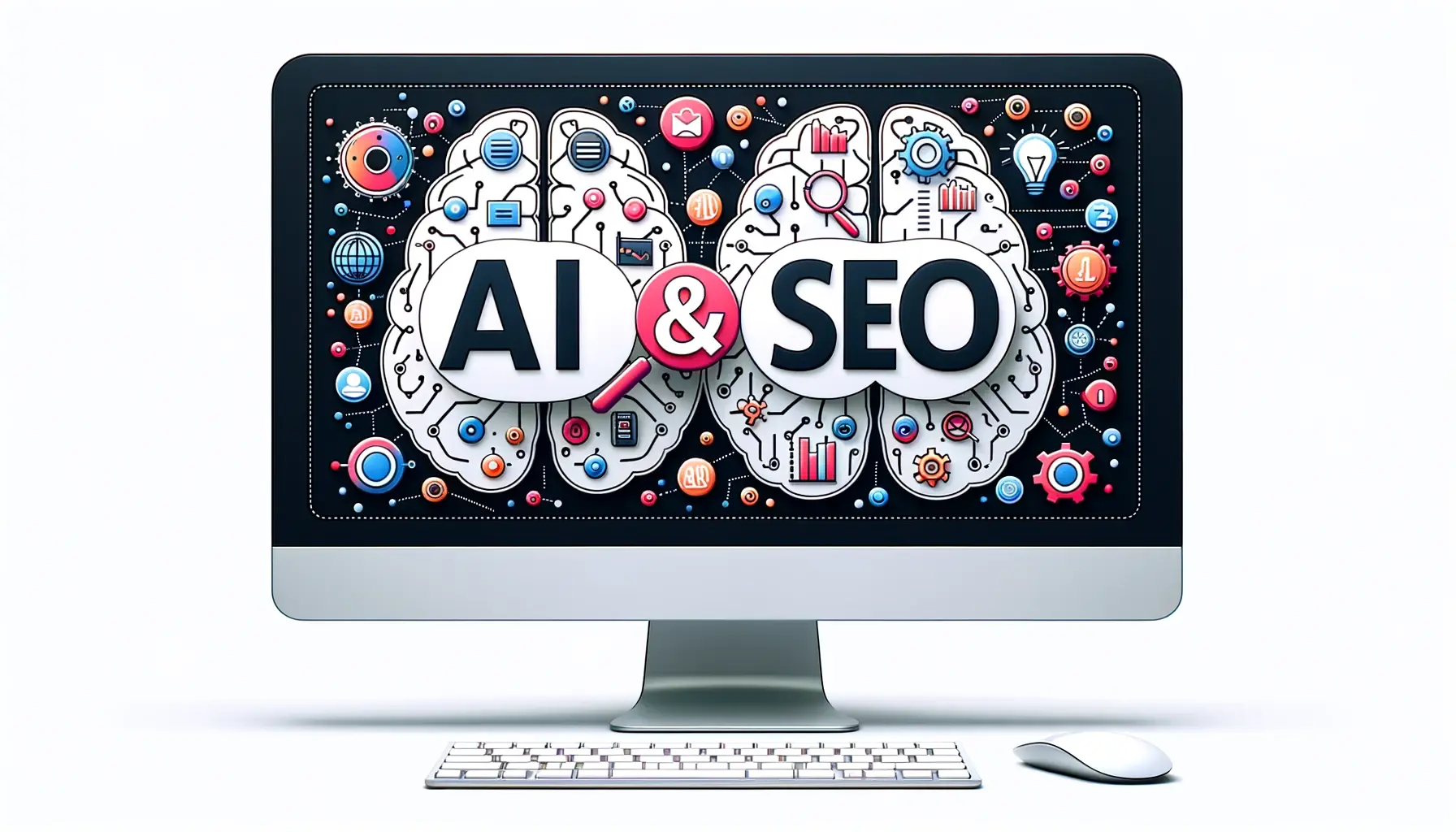
Machine learning and SEO
Machine learning, a subset of AI, plays a central role in modern SEO. By analysing large amounts of data, machine learning can help marketers understand complex patterns and behaviours of users and search engines. With this insight, SEO strategies can be tailored to better meet user needs and search engine requirements.
The Impact of AI on Keyword Analysis
Traditional keyword analysis focuses on identifying relevant keywords and phrases that potential customers can use to find a company's products or services. With the introduction of AI, this process has become more sophisticated and data-driven.
Understanding Semantics
AI technologies such as Google's BERT (Bidirectional Encoder Representations from Transformers) and RankBrain have improved search engines' understanding of natural language. They can now better interpret users' intentions behind search phrases and deliver more relevant results.
Keyword research on Steroids
Using AI-based tools, SEO specialists can now perform more advanced and insightful keyword research. These tools can identify long-tail keywords, synonyms, and related phrases that can be used to optimise content and increase traffic.
| function | Description |
|---|---|
| Long-tail keywords | Identifies longer and more specific search phrases that users can search for. |
| Semantic analysis | Understanding the context and intent of search phrases. |
| Competition analysis | Analyses competitors' use of keywords and their ranking in search results. |
By integrating AI into keyword analysis, SEO specialists and digital marketers can create more effective and targeted campaigns. This not only optimises the use of resources but also improves the overall effectiveness of SEO strategies.
Natural Language and SEO
Natural language processing (NLP) is another important component of the interaction between AI and SEO. NLP technologies help search engines understand and interpret human language, which in turn improves the match between search phrases and relevant web pages.
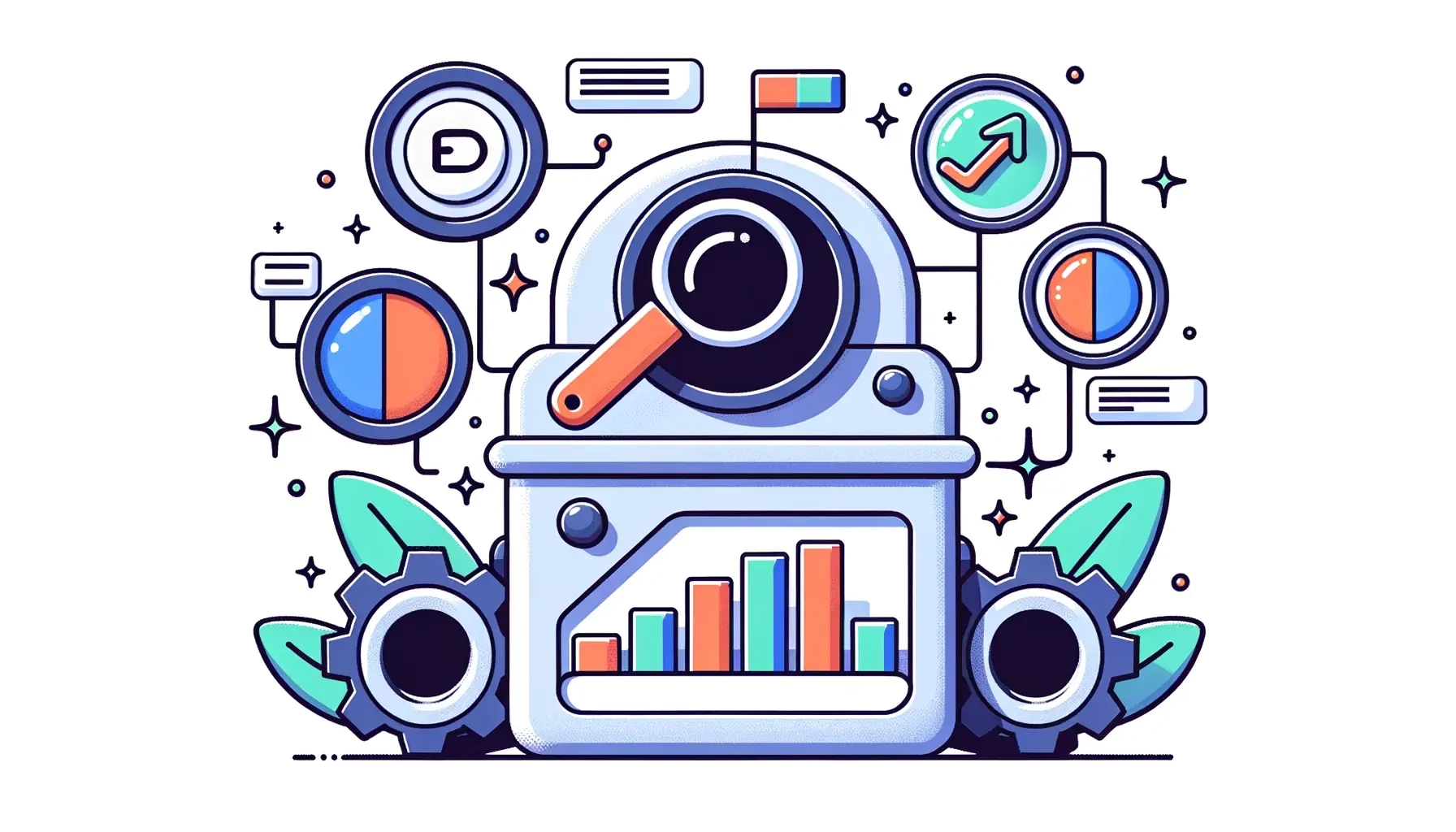
Better Matching
By understanding natural language, search engines can better match users' searches with relevant results. This is particularly important in the case of voice-based searches, where users tend to use natural and conversational language.
Localised Content
NLP also enables better localised content by understanding different dialects and linguistic nuances. This is crucial for businesses that want to rank highly in local search results and reach a wider audience.
AI and Content Optimisation
Content is king, as the old saying goes, but AI gives that crown a technological lustre. By facilitating the creation of high-quality, relevant and optimised content, AI is revolutionising the way we approach content strategy.
Precision and Personalisation
With AI, content can be tailored to meet specific user needs and preferences. This makes it possible to create more personalised and engaging content, which in turn improves the user experience and increases the chances of higher rankings in search engine results.
Automate Content Creation
AI technologies like GPT-3 and GPT-4 have enabled automated content creation, which can be a game changer for SEO. By producing well-optimised content quickly and efficiently, companies can keep their websites updated and relevant without draining resources.
AI and Backlinks
Backlinks are the lifeblood of a website's SEO strategy. AI can play an important role in identifying and creating valuable backlinks that can improve a website's authority and ranking in search engine results.
Smart Link Building
By analysing large amounts of data, AI can identify potentially valuable backlink opportunities. It can also automate certain aspects of the link-building process, saving time and effort.
Competitor analysis
AI can also be used to analyse competitors' backlink profiles. By understanding the types of links that help competitors rank highly, companies can develop a more effective link building strategy.
AI and Image Generators: The Future of Visualisation
In an era where visual content is taking centre stage, AI-powered image generation is emerging as a force that is redefining the landscape of creativity and automation. Technologies that transform text into images are paving the way for a creativity revolution.
Midjourney exemplifies how AI can be used to bring textual descriptions to a visual dimension. As an independent research lab, Midjourney navigates the uncharted waters of creative thinking, striving to expand the boundaries of human imagination. By harmonising design, human infrastructure and AI, they aim to manifest innovative solutions that transform text into visual content.
This technological innovation has the potential to dramatically transform sectors from advertising and marketing to entertainment and education. Imagine the ability to describe a scene in detail and instantly produce an image or illustration that exactly mirrors that description. It can reduce the reliance on graphic designers for certain tasks and gives creators a faster route to visualising their ideas.

Future Opportunities and Challenges
The technological advances behind text-to-image generators like Midjourney are certainly impressive, but it's a road fraught with challenges. The quality of the generated images can vary greatly, and it can be an ordeal to get the exact image you envision based on a text description. Another area of concern is ethical considerations, especially when it comes to creating images that can be perceived as real photographs.
Despite the challenges, the potential for AI-driven image generation is monumental. With continued research and development, these tools can be refined to become even more powerful and accurate, expanding uses and opportunities across different sectors.
In summary, AI and image generators like Midjourney symbolise the future frontiers of visual creativity. By bringing together the power of technology with human imagination, we can begin to explore new and exciting ways to create and share visual content.


What Do Text-to-Picture Generators Mean for Artists and Photographers?
AI-powered image generation, exemplified by platforms like Midjourney, has the potential to transform many aspects of the visual industry. But what impact does this have on artists and photographers, especially those who sell their work on platforms like Shutterstock?
The Role of Artists and Photographers in the Digital Age
Traditionally, artists and photographers have had a unique role in creating original images, guided by their own creative vision. Their skills, experience and creative eye have allowed them to create works that are both aesthetically pleasing and emotionally gripping. Many of these professionals sell their work on image banks like Shutterstock to reach a wider audience and monetise their art.
The impact of AI on the imaging market
With the emergence of AI-driven image generation, high-quality images can now be created based solely on text descriptions. This means that businesses and individuals can potentially generate images that suit their exact needs without having to pay for licensed images from platforms like Shutterstock.
For artists and photographers, this could mean a reduced demand for their work, especially for more generic images that can be easily reproduced by an AI. On the other hand, it could also create new opportunities for these professionals to collaborate with AI to create more complex and unique works.
Ethical and Creative Considerations
While AI can create images, it lacks the human touch, emotion and intention that a real artist or photographer can bring to their work. There are also ethical considerations to take into account. Is it fair for an AI to "create" art? And how do we value that art compared to a work created by a human?
Moreover, the overuse of AI in art and photography can lead to a homogenisation of visual content, where images start to look the same because they are generated based on the same algorithms.
While AI-powered image generation offers exciting new opportunities, it is important not to underestimate the value of human creativity and skill. Artists and photographers will always have an important role to play, and their unique perspectives and talents cannot be easily replaced by a machine.
AI and Local SEO
Local SEO is crucial for SMEs that want to dominate in local search results. AI can offer several advantages when it comes to optimising a website for local search.
Local search engine analysis
By analysing local search trends and the competitive landscape, AI can help businesses optimise their local SEO strategy. This includes identifying local keywords and phrases that are most relevant to their target audience.
Optimisation of Google My Business
AI can also help optimise a company's Google My Business profile by analysing user reviews, questions and answers, and other important factors that can affect a website's local SEO performance.
AI and User Experience
User experience (UX) is a critical factor that search engines use to assess the quality and relevance of a website. AI can help improve UX by offering deeper insights into user behaviour and website performance. As you know, we at Webbzone can help you or your company to develop a professional website. website?
Behavioural analysis
By using AI to analyse user behaviour, companies can gain insights into how visitors interact with their website. This information can then be used to make improvements and optimise website design and content.
Performance optimisation
AI can also be used to monitor and improve website performance. By identifying and fixing performance issues, companies can provide a faster and more satisfying user experience, which in turn can lead to better SEO results.
AI and the Future of Search Engines
With AI on the rise, it's clear that the future of search engine optimisation will be deeply rooted in technological innovation. This section highlights how AI will continue to shape the SEO landscape and how businesses can prepare for the coming changes.
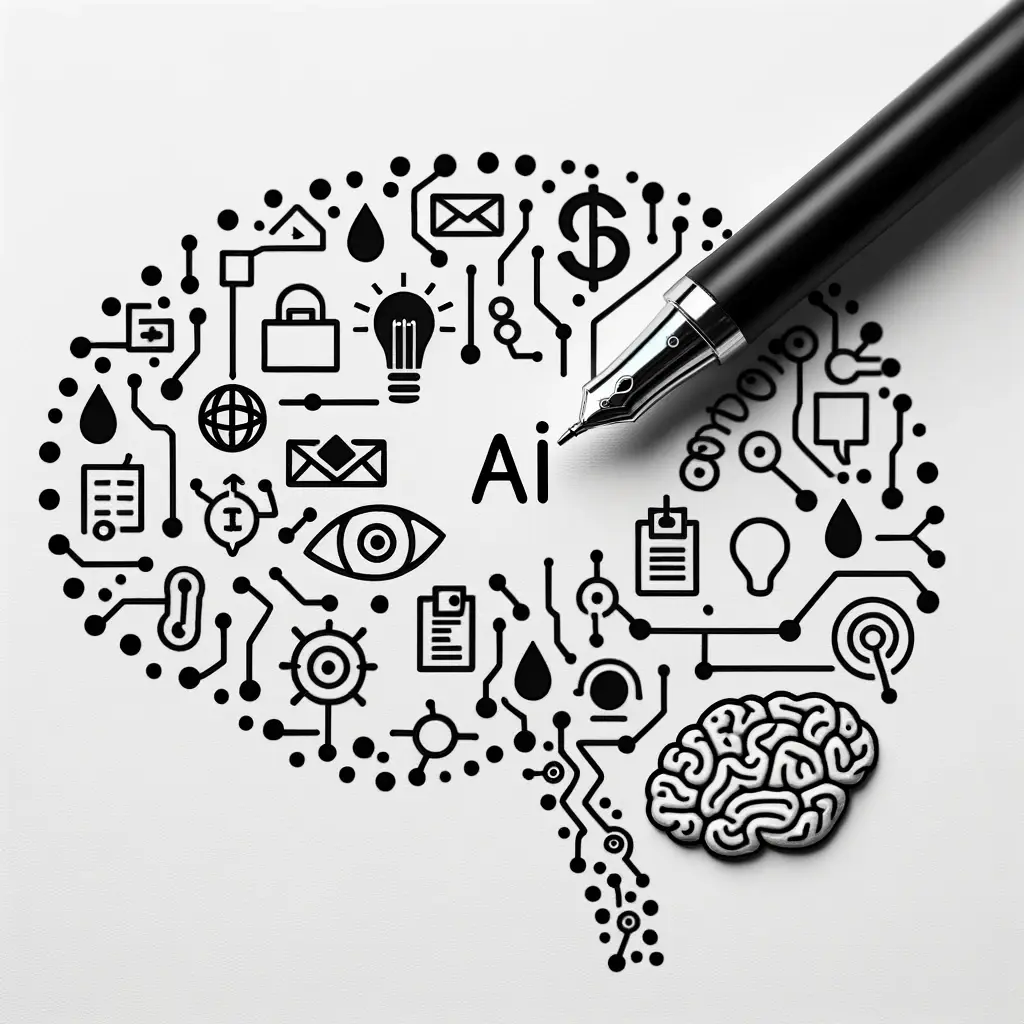
Predictive Analysis
AI will allow a more predictive approach to SEO. Using advanced algorithms, companies will be able to predict changes in search engine algorithms and user behaviour, allowing for a more proactive SEO strategy.
Search engines are getting smarter
Search engines will continue to evolve with the help of AI, leading to more sophisticated and accurate search results. This means that SEO specialists must stay on their toes and continuously update their strategies to keep up with the evolution of search engines.
Ethical considerations
As with any technological advance, AI and its impact on SEO brings with it ethical dilemmas that need to be considered and addressed.
Data Privacy and Transparency
AI analysis of large amounts of data can potentially infringe on users' data privacy. Therefore, companies need to be transparent about how they collect and use data and ensure that they comply with data protection laws and regulations.
Authentic vs Automated Content
While AI can create content, there is an important discussion about the authenticity and quality of automated content compared to human-created content. This is an aspect that must be carefully considered by companies considering using AI for content creation.
Case studies
To illustrate how AI can be used for SEO in practice, let's look at some case studies of companies that have used AI to improve their SEO strategy and achieve better results.
- Netflix is one of the leading streaming services in the world, with over 200 million subscribers. Netflix uses AI to optimise its content for different markets, languages and cultures. For example, Netflix uses AI to create customised titles, descriptions, images and videos for each country, based on what attracts the most attention and engagement from users. Netflix also uses AI to personalise its recommendations for each user, based on their previous views, ratings and preferences.
- TripAdvisor is one of the largest travel platforms in the world, with over 800 million reviews and opinions from travellers. Tripadvisor uses AI to analyse its huge amount of data and provide its users with more relevant and valuable information. For example, Tripadvisor uses AI to identify the most popular destinations, hotels, restaurants and activities based on users' searches, reviews and ratings. Tripadvisor also uses AI to create dynamic pricing based on demand, season and competition.
- HubSpot is one of the leading platforms for marketing, sales and customer service. HubSpot uses AI to help its customers create better content that rank high on search engines. For example, HubSpot uses AI to provide its customers with keyword suggestions, content analysis, headline generators, and SEO optimisation tips. HubSpot also uses AI to help its customers measure and optimise their content performance, engagement, and conversion.
Tools and Resources
If you want to learn more about AI and SEO, or try some of the AI tools we've mentioned in this article, check out these links:
- AI and SEO: The Ultimate Guide: A comprehensive guide that explains how AI works, how it affects SEO, and how you can use it to improve your SEO strategy.
- AI SEO Software: A list of the best AI tools for SEO, including features, prices and reviews.
- AI SEO CourseAn online course that teaches you how to use AI to optimise your website or content for search engines, with practical examples and exercises.
Conclusion and outlook
AI is a revolutionary technology that is having a major impact on SEO. AI can help you understand your audience, optimise your content, get more backlinks, improve your local SEO, enhance your user experience and stay up to date with the latest trends and algorithms.
But AI is not a substitute for human creativity, intuition and ethics. AI is a tool that you can use to complement and enhance your SEO strategy, but you still need to be responsible, aware and respectful of your users and other parties.
Nor is AI a static or perfect phenomenon. AI is constantly evolving and learning from new data, experiences and feedback. This means that you must be prepared to adapt to the new opportunities and challenges that AI can offer.
AI and SEO are two areas that will continue to grow and interact in the future. If you want to be successful in the digital world, you need to be ready to embrace AI and use it in a smart and ethical way.

